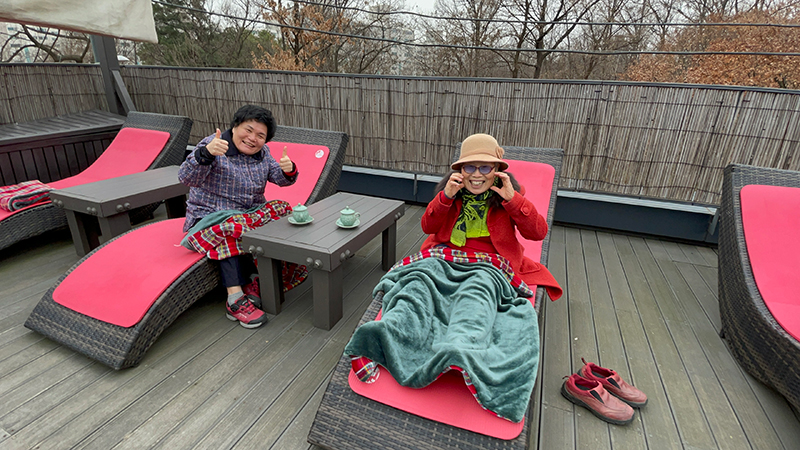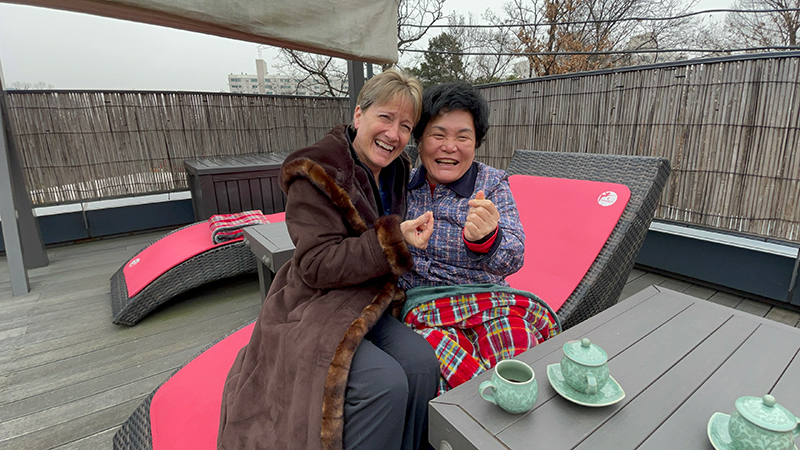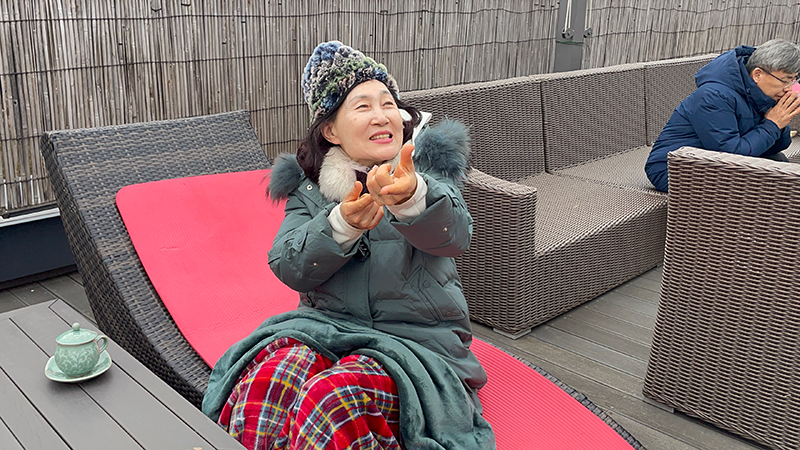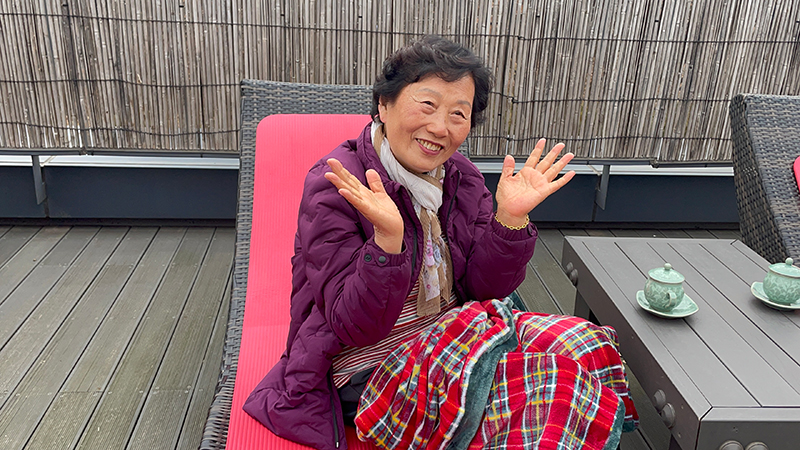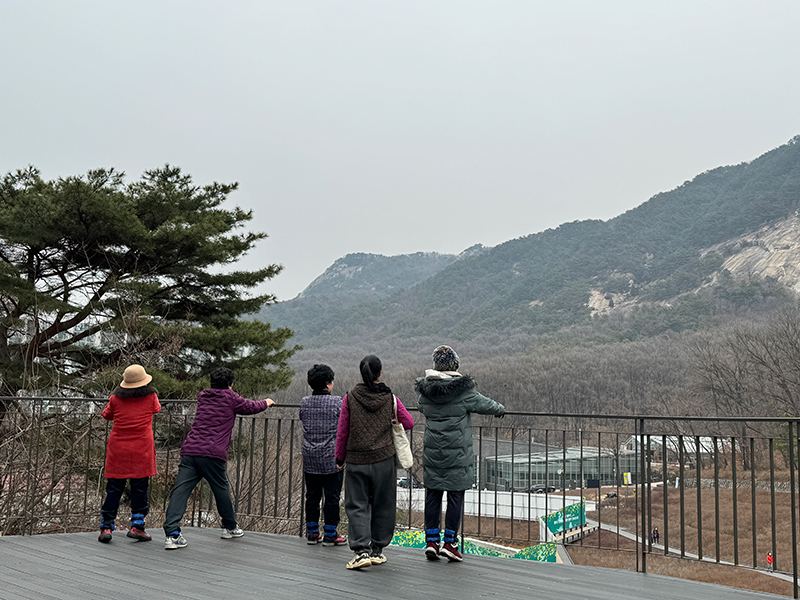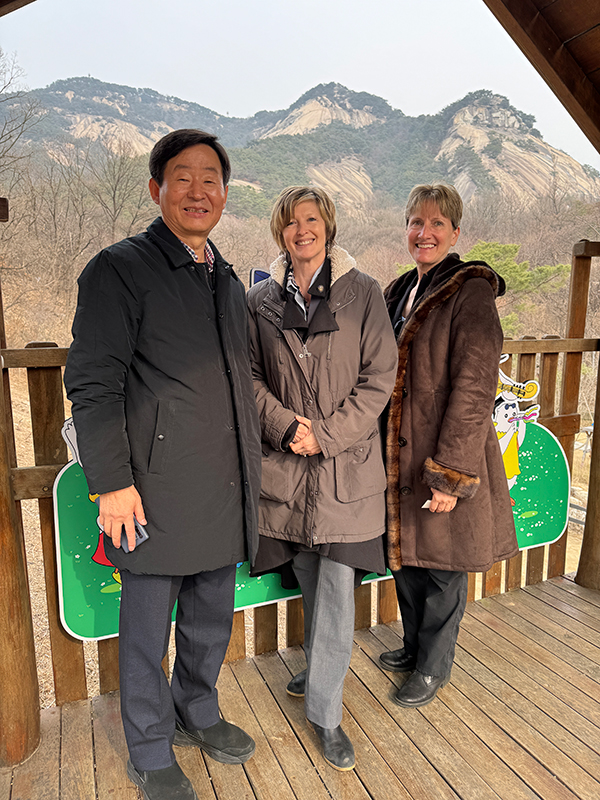Nurturing Nature Lifelong Living
Aging gracefully with the support of nature
Aging gracefully with the support of nature
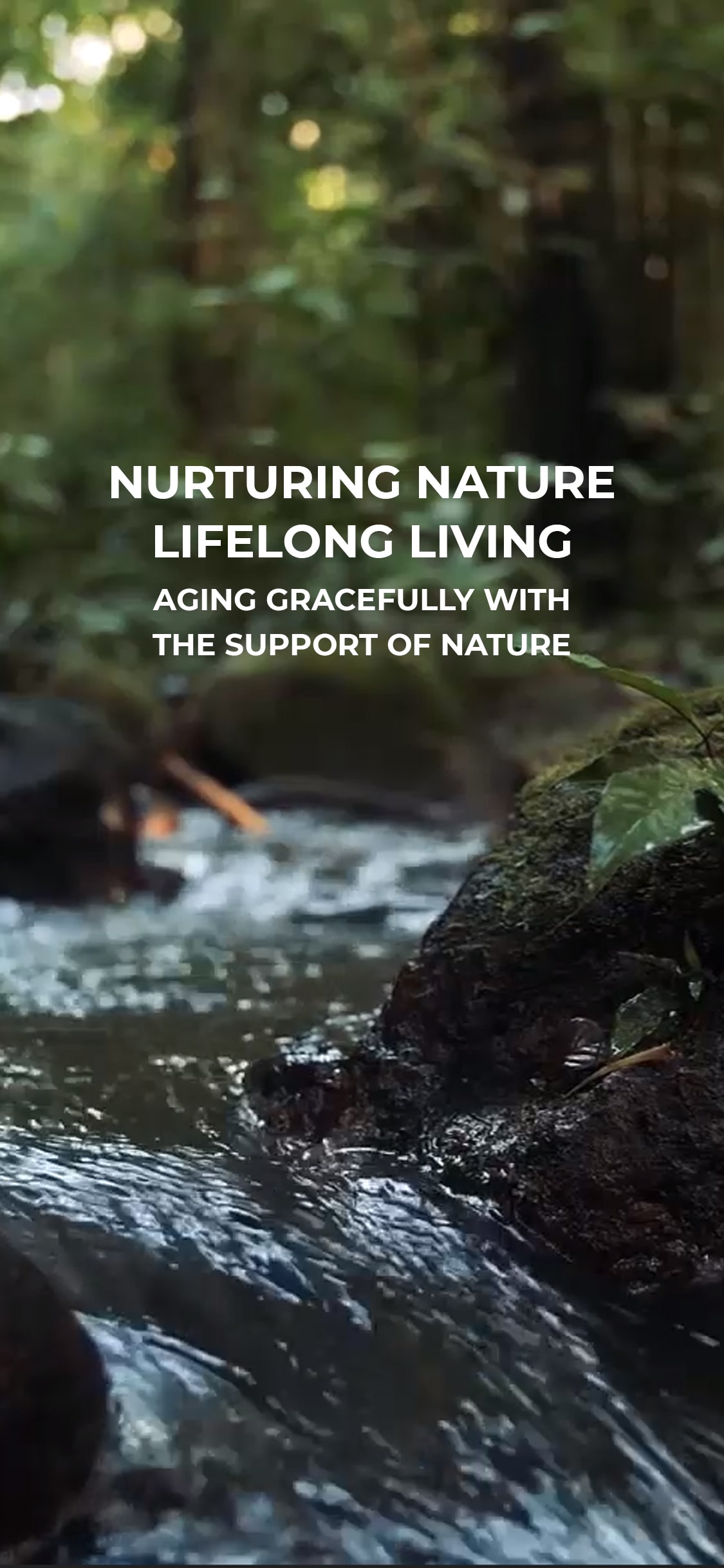
The “Seeing” Tree
Dr. Tamberly Conway
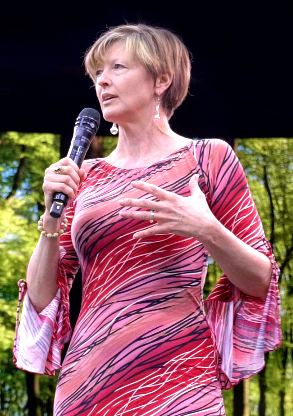
Dr. Tamberly Conway
Tamberly is propelling the paradigm of nurturing self, others, and the land.
Through Nurturing Nature Lifelong Living, Forest Healing Centers and Senior/Elder Communities of Care shift to a more inclusive and supportive model for senior care, to inspire and affect national and global social change.
Tamberly’s intention is to connect and collaborate with others in this manifestation. She invites you to join her in creating lasting change that positively affects future generations and expands the reciprocal nurturing nature of self, one another and our Mother Earth.
Executive Summary
South Korea’s contributions to forest therapy are immense and deserve particular recognition. The country has long embraced nature’s healing power, developing one of the most comprehensive and successful forest therapy programs in the world. South Korea’s healing forests serve not only as recreational spaces but also as therapeutic environments integrated into public health strategies. These programs have shown tremendous success in treating depression, anxiety, and stress-related disorders. Research from South Korea confirms that forest therapy boosts immune function, reduces stress, and improves mental well-being, particularly in urban populations. These contributions have been critical in advancing the global understanding of how natural environments can promote health.
Japan’s practice of “Shinrin-yoku” (forest bathing) has similarly led to profound health benefits, including a reduction in stress hormones by 12-15%, lower blood pressure, and enhanced mood and energy levels. In both South Korea and Japan, healing forests are not just places of beauty but are vital components of national health systems, offering an evidence-based approach to reducing stress and enhancing mental health.
Supporting these international successes, the NIH has also conducted extensive research on the health benefits of forest therapy. Their findings show that exposure to nature can significantly reduce symptoms of anxiety, depression, and cognitive impairment. Forest therapy improves cardiovascular health, lowers cortisol levels, enhances cognitive function, and promotes better sleep, particularly for elderly individuals. Specifically, in rehabilitation and elderly care settings, for those suffering from cognitive illnesses such as dementia and Alzheimer’s, forest therapy has proven to be an effective way to stimulate memory, reduce agitation, and enhance quality of life.
Nurturing Nature Lifelong Living’s healing centers will build upon this global knowledge and research by offering immersive programs that bring the healing power of nature to U.S. communities, with a special focus on elderly care. These centers will serve as sanctuaries for holistic healing, addressing conditions such as cognitive decline and social isolation while fostering a deeper connection between humans and the natural world. Moreover, they will honor the traditions of global pioneers like South Korea and Japan by incorporating their methodologies into the U.S. health landscape.
By blending best practices from around the world and drawing from NIH-backed research, Nurturing Nature Lifelong Living is poised to make a significant impact on elder care and public health in the U.S. Through our healing centers, we aim to create nurturing spaces that support human health while also fostering environmental stewardship, ultimately contributing to a more sustainable and compassionate future for all.
With the global rise of forest therapy, Nurturing Nature Lifelong Living is positioned to make a significant impact on the health and wellness of individuals across the U.S., especially in under-served elderly populations. Our goal is to create lasting, measurable improvements in the lives of those who need it most, harnessing the power of nature to heal people and the planet alike.
South Korea and Beyond
Our outcome is to integrate global best practices from South Korea and Forest Therapy initiatives worldwide to make a profound impact on elder care and public health in the U.S. By adopting these proven models, we aim to create nurturing environments that address the pressing health challenges of our time, including cognitive decline, stress, and social isolation, particularly in aging populations.
Our mission is to build spaces that promote both human and ecological health, fostering a deep connection between people and nature. These healing spaces will not only support physical and mental well-being but also encourage sustainable practices that benefit the planet. By promoting holistic health and environmental stewardship, we envision a sustainable and healing future for all, grounded in the wisdom of nature and the therapeutic power of forests.
One key way we will bring this vision to life is through a documentary project. During the upcoming conference, we will capture the lessons learned from the past two decades of Forest Therapy practices globally. This documentary will tell the story of Nurturing Nature Lifelong Living, expand awareness of our program, and serve as a powerful tool to inspire communities across the U.S. to embrace Forest Therapy as a transformative approach to health and well-being.
Meet the Nurturing Nature Lifelong Living Team
Executive Leadership
Creative Production Team
Advisory Board
Research
Nature-Based Interventions Targeting Elderly People’s Health and Well-Being: An Evidence Map
Green Social Prescribing in Practice: A Case Study of Walsall, UK
Elder Briefing Spreads – by Dr. Kathleen Wolf (U of Washington (retired)
A Nature Sacred – TKF Foundation report;
An excellent literature review – In Kathy’s words: “a listing of studies that makes it abundantly clear why older adults need access to nearby nature.”
Good news for urban dwellers: more trees, better health
The Importance of Nature for Senior Well-Being – I Advance Senior Care
How Senior Care Communities Can Keep Residents Connected with Nature – I Advance Senior Care
Forest Therapy as a Nature-Based Intervention: An Option for Neurological Rehabilitation?
Spending time in the great outdoors has powerful healing effects – here’s why
2024 World Forum on Forest Therapy

Team members presenting:
Tamberly Conway
Daisy Morgan
Eric Friedman
Jenny Harrow-Keeler
Beginnings in South Korea
Dr. Won Sop Shin
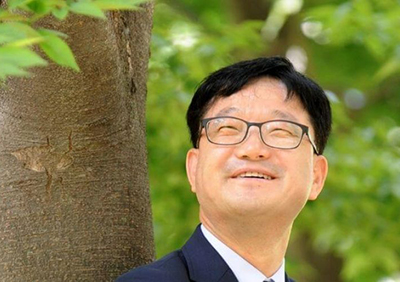 Dr. Won Sop Shin is a global leader in the Forest Therapy movement with roots created from childhood and a small Korean village, where he grew up, loving the forests that surrounded him.
Dr. Won Sop Shin is a global leader in the Forest Therapy movement with roots created from childhood and a small Korean village, where he grew up, loving the forests that surrounded him.
Dr. Shin received his PhD in forestry from the University of Toronto in Canada. His love of forests and forest therapy propelled him to serve for over 30 years as the department had of the graduate program of Forest therapy at Chaumont national University and Correa. Period. His research focuses on forests and their relationship to human health and well-being with a connection to psychological benefits derived from and Forest therapy experiences.
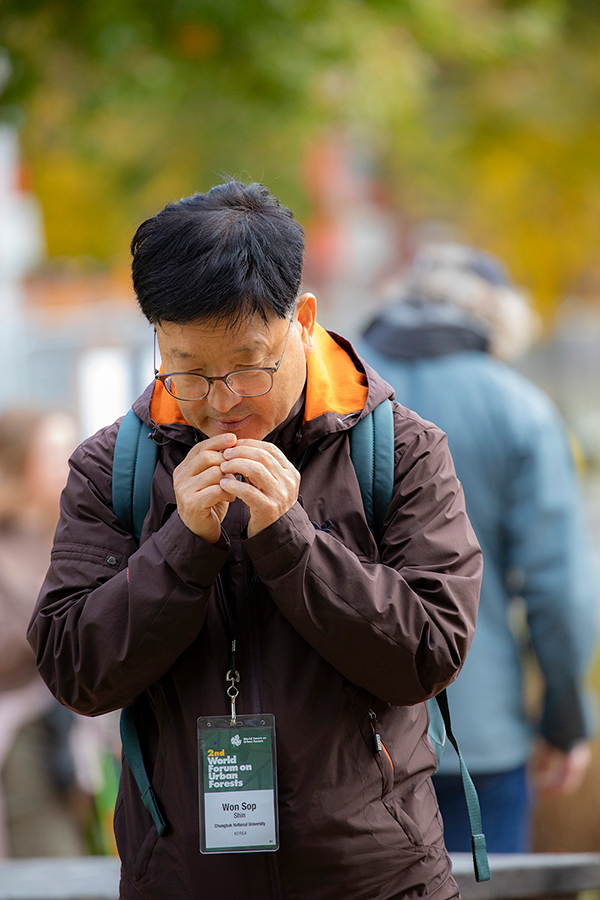 Dr. Shin served as the Minister of the Korea Forest Service for six years, where he played a significant role in developing forest policies that revolved around forests for human health and welfare. Dr. Shin left the Korea Forest Service to bring Forest Therapy deeper into public policy, founding the Forest Welfare Act in 2012 and establishing the Korea Forest Welfare Institute that now houses numerous National Forest Therapy Centers and other forest-related education and recreation centers throughout the nation.
Dr. Shin served as the Minister of the Korea Forest Service for six years, where he played a significant role in developing forest policies that revolved around forests for human health and welfare. Dr. Shin left the Korea Forest Service to bring Forest Therapy deeper into public policy, founding the Forest Welfare Act in 2012 and establishing the Korea Forest Welfare Institute that now houses numerous National Forest Therapy Centers and other forest-related education and recreation centers throughout the nation.
With over 37 Forest therapy centers managed by Central and local governments, Correa is at the forefront of integrating this model to support the well-being of their people. Dr. Shin is an advocate for establishing interest among other governmental agencies and the private sector to support the continued growth and expansion of the Forest Therapy movement.
During the 2023 World Forum on Urban Forests, in a meeting with Dr. Shin at the International Programs Office of the U.S. Forest Service, in Washington, DC, Dr. Shin revealed these National Forest Therapy Centers were inspired by elder communities in Korea. This statement was incredibly inspirational in setting the stage for advancement and growth in this arena of Forest Therapy serving as a catalyst to support elder communities of care.
Dr. Shin Also served as president of the Korea Forest Therapy Forum, which has been instrumental in the implementation of the 2024 World Forum on Forest Therapy in Daejeon, Korea. Dr. Shin is a constant catalyst from moving this important work forward by uniting global leaders, visionaries, and action figures who are poised to support Dr. Shin’s incredible Forest Therapy Legacy.
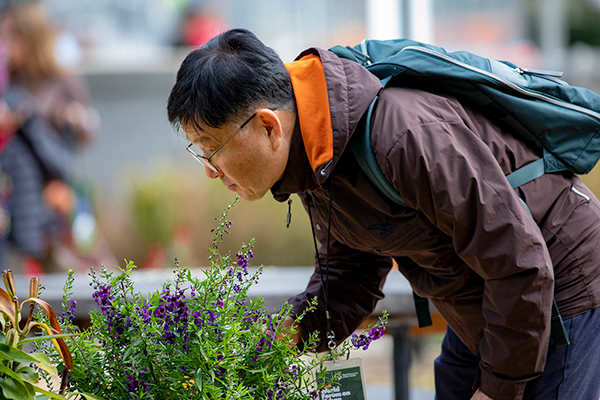
2022 World Forestry Congress
During the 2022 World Forestry Congress, in Seoul, Republic of Korea, in honor of collective efforts to propel the important role of forests for human health and well-being, it was decided to form a collective of entities to continue in the collective role of cross-pollinating Forest Therapy practice, research and policy. An International Forest Therapy Memorandum of Agreement Team was formed, consisting of the USDA United States Forest Service (domestic and international programs), University of British Columbia’s Asia Forest Research Center, Korea Forest Therapy Forum, Korea Forest Welfare Institute and Conservation Conexions. This team has joined in concert to advance this work at the global level, inspiring new audiences and future generations.
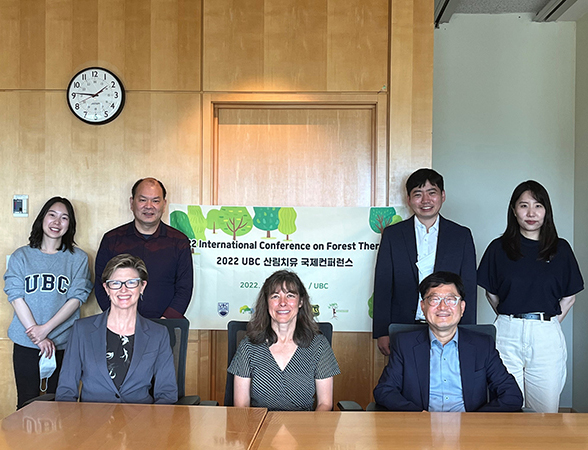
Front row (left to right) Dr. Tamberly Conway; Founder & CEO, Conservation Conexions Michiko Martin; Regional Forester, USDA Forest Service Dr. Won Sop Shin; President, Korea Forest Therapy Forum; Head of Graduate Department of Forest Therapy, Chungbuk National University
Back row (left to right) Yawei Wei; Doctoral Student for Forest Therapy, University of British Columbia Dr. Guangyu Wang; Associate Dean, Asian Strategies, Director of Asian Forest Research Centre, UBC Faculty of Forestry, University of British Columbia Hugh Kim; Former Manager, Korea Forest Welfare Institute Kay Oh; Former International Cooperation Specialist, Korea Forest Welfare Institute
An Inspirational Forest Therapy Awakening
Relationship building and collaboration creation
February/March 2024
Have you ever had a calling so deep that you could truly feel the drive guiding you in the direction of the light?
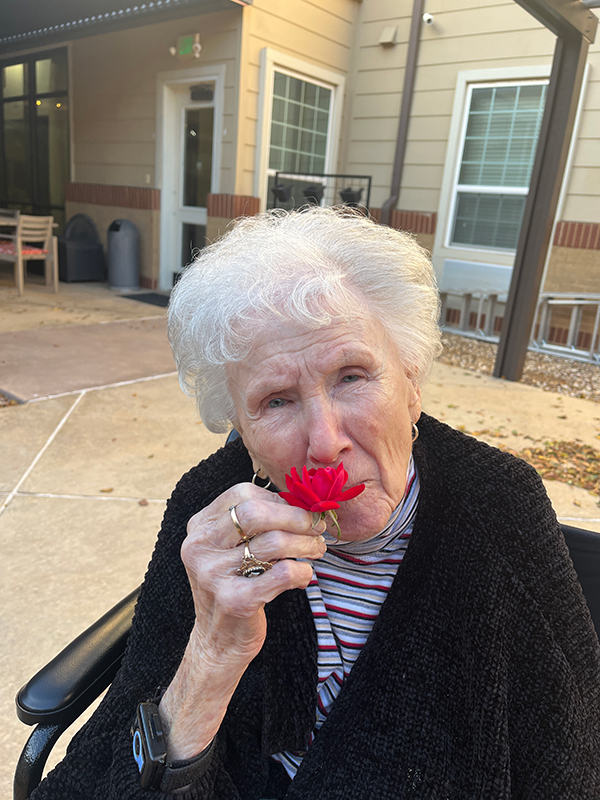 My original inspiration, to embed Forest Therapy into elder communities of care, came to me during a time in which I was caring for my 98 year old grandmother. I observed a lack of nurturing care being delivered in the assisted living/memory care community where she resided. I persuaded the administrators to employ my talents of engaging nature-based programming, integrating breath work, movement, motion, sensory engagement and affirmations to support both residents and care associates.
My original inspiration, to embed Forest Therapy into elder communities of care, came to me during a time in which I was caring for my 98 year old grandmother. I observed a lack of nurturing care being delivered in the assisted living/memory care community where she resided. I persuaded the administrators to employ my talents of engaging nature-based programming, integrating breath work, movement, motion, sensory engagement and affirmations to support both residents and care associates.
 I was further inspired during a special invitational gathering honoring Dr. Won Sop Shin which focused on Forest Therapy. This meeting was held at the U.S. Forest Service International Programs Office in Washington, D.C., in conjunction with the World Forum on Urban Forests. During Dr. Shin’s speech, he mentioned that Forest Therapy had actually been inspired by the elder populations in Korea; this was very intriguing to me.
I was further inspired during a special invitational gathering honoring Dr. Won Sop Shin which focused on Forest Therapy. This meeting was held at the U.S. Forest Service International Programs Office in Washington, D.C., in conjunction with the World Forum on Urban Forests. During Dr. Shin’s speech, he mentioned that Forest Therapy had actually been inspired by the elder populations in Korea; this was very intriguing to me.
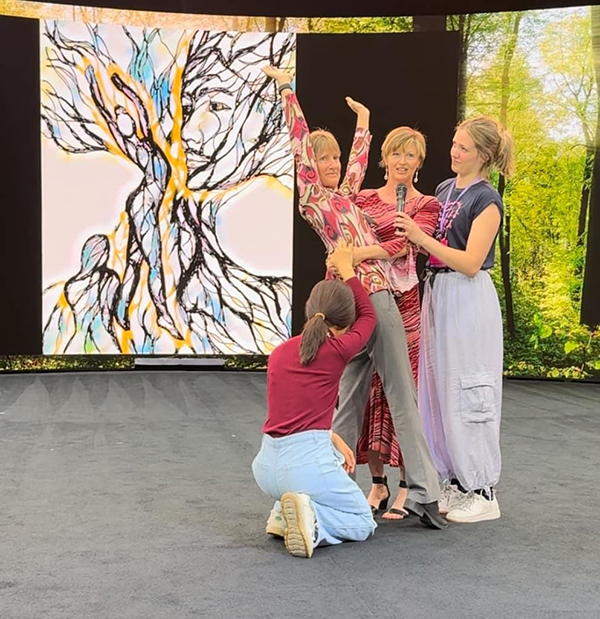 The point of no return occurred one unforgettable day, in January 2024, during a True Legacy Collective gathering in the Dominican Republic. Loren Lahav invited me to share my vision and when I did it brought about a level of excitement among a group of women and philanthropists that was palpable. I was suddenly challenged by several of my TLC sisters to visit South Korea in order to capture and expand this vision. It was that day, after a magical walk in the labyrinth and the confirmation of my sisters that my vision of creating a Forest Therapy Center was brought into being. This center would be based upon the Korean model while integrating my own twist of establishing an elder residential community of care that would support elders, their loved ones and their caregivers.
The point of no return occurred one unforgettable day, in January 2024, during a True Legacy Collective gathering in the Dominican Republic. Loren Lahav invited me to share my vision and when I did it brought about a level of excitement among a group of women and philanthropists that was palpable. I was suddenly challenged by several of my TLC sisters to visit South Korea in order to capture and expand this vision. It was that day, after a magical walk in the labyrinth and the confirmation of my sisters that my vision of creating a Forest Therapy Center was brought into being. This center would be based upon the Korean model while integrating my own twist of establishing an elder residential community of care that would support elders, their loved ones and their caregivers.
It became my goal to start bringing small groups of people to Korea to witness the power of forest therapy through the Korea Forest Welfare Act and federally supported National Forest Therapy Centers and privatized forest healing centers. In my heart, I knew that if people in the U.S. could see and experience the depth of this work in Korea, they would also be able to envision what this might look like in the U.S. and beyond.
My dear friend, confident and colleague, Jennifer Blackwelder, agreed to embark upon a journey with me, to South Korea, that took place in February of 2024. During our trip we built relationships and concentrated on focused learning that would inspire conversations and actions toward propelling forest therapy at a higher level in the U.S. and globally.
While in the Republic of Korea we focused upon meeting top-level officials within the Korea Forest Welfare Institute (FoWI) to learn more about their efforts of advancing Forest Therapy at the national level. We were so graciously guided by Nanhee Kim, Dr. Shin’s doctoral student of Forest Therapy, as she ushered us to the snow-covered coastal region, where we first visited Mr. Songsan and Mr. Alex at Hanulsoop Forest Memorial Park, which is the only designated National Burial Forest. Site administrators, Mr. Songsan and Mr. Alex, graciously shared the programmatic aspects of this space honoring loved ones who have passed by being laid to rest beneath stately trees in a sacred burial forest. We visited several of these stately trees, as well as an intricately carved memorial honoring the spirits united in sacred space.
The following morning, we were guided through specially formed paths through three feet of snow to Daegwallyeong National Forest Therapy Center where we met Dr. Jinsook Kim, Director of the Forest Therapy Center, and a PhD graduate of the Forest Therapy graduate program at Chungbuk National University. Dr. Kim described a variety of Forest Therapy programs tailored to meet the needs of elder participants and shared some of the positive research-based outcomes associated with these program efforts.
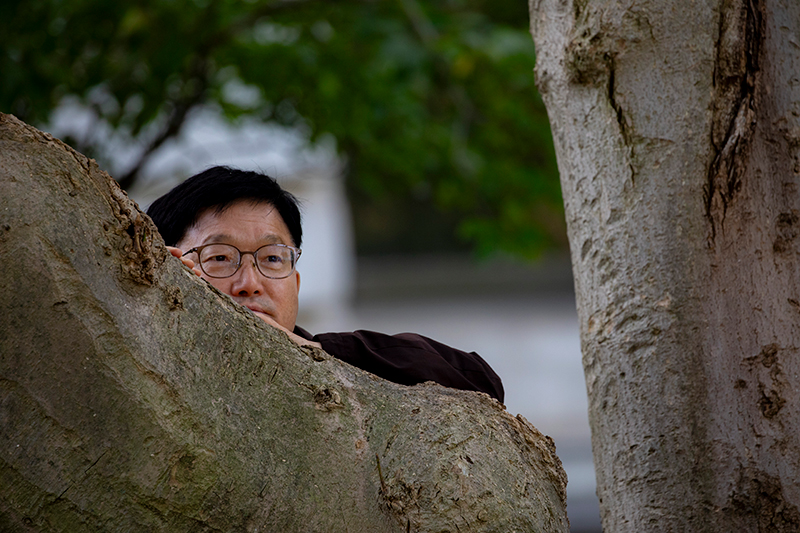
We were honored to meet with the President of FoWI and the former President of FoWI, Chang Jae Lee, and to partake in a Forest Therapy session at the first Urban Forest Therapy center in Seoul, with center Director, Dr. Junyun Kim, who was also the first PhD graduate of the Graduate program of Forest Therapy at Chungbuk National University. We graciously participated in a Forest Therapy program, which was designed specifically for aging populations, where we noted the joyful essence of the four elder women who were program participants. It is amazing how quickly relationships can form being held in the essence of Mother Nature. Jennifer and I had the opportunity to bond deeply with these four women during the Forest Therapy sessions. As we dove into sensory connection, and navigated any language barriers with giggles and radiant smiles, we learned about their personal experiences in these programs that had transformed their lives and friendships. One woman, in her 80s, said she had been engaging in the Forest Therapy program, 3 times per week, for four years and she believed this was the reason she went from having a diagnosis of diabetes four years ago to a state of no longer being diabetic.
One insightful couple we met at the Korea Institute of Oriental Medicine has dedicated their lives to engaging in research around Forest Therapy effects on neurological function, with specific outcomes related to Parkinson’s disease. Dr. Ji-yune Yi and Dr. Jaeuk Kim have worked tirelessly in this research realm, as Dr. Yi’s father was diagnosed with Parkinson’s and she was therefore inspired in a path of discovery that might help others in the future to cope with this debilitating disease. This work is critical, and incredibly inspirational, as we continue to see a rise in Dementia, Alzheimer’s and Parkinson’s disease throughout the world. The fascinating technological advances shared with us will create incredible openings and healing pathways for current and future generations.
Forest therapy has the capacity to shift the paradigm of elder care by providing natural and integrative healing mechanisms to aging populations in senior community of care settings. Exposure to indoor and outdoor nature and forest settings provides avenues towards reduced stress, improved cognition, increased self-worth, enhanced quality of life and an overall increase in health and wellbeing. For over 30 years, researchers have developed models and programs to support their aging populations, as well as developing targeted programs for all ages from cradle to grave. This journey to South Korea propelled the manifestation, which is tied to our team’s current efforts in bringing this important work forward that will improve the wellbeing of all people and specifically, our elder loved ones.
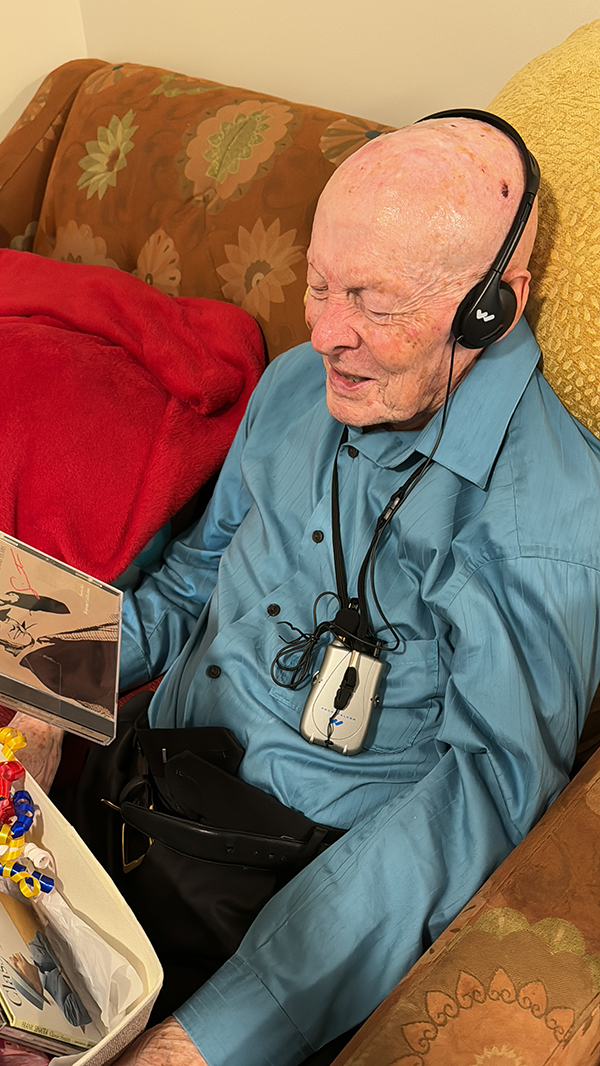 My most recent inspiration to bring this work forward arises in my own personal journey of caring for my father who has Alzheimer’s and seeking a community that honors him in this journey through deep nurturing care. I realize that my mother is also in need of additional support as she moves into her own healing journey in the face of cancer, and so, I continue to envision and manifest a nurturing space that will support our collective loved ones with tenderness and loving care, while valuing their beauty, wisdom and purpose in this world.
My most recent inspiration to bring this work forward arises in my own personal journey of caring for my father who has Alzheimer’s and seeking a community that honors him in this journey through deep nurturing care. I realize that my mother is also in need of additional support as she moves into her own healing journey in the face of cancer, and so, I continue to envision and manifest a nurturing space that will support our collective loved ones with tenderness and loving care, while valuing their beauty, wisdom and purpose in this world.
Gratitude to FoWI and Dr. Won Sop Shin for providing incredible energy and resources, specifically personnel support of Jin-soo Shin and Nanhee Kim, as they opened doors to new relationships and expanding collaborations of advancing Forest Therapy in the U.S. and beyond.
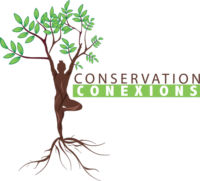
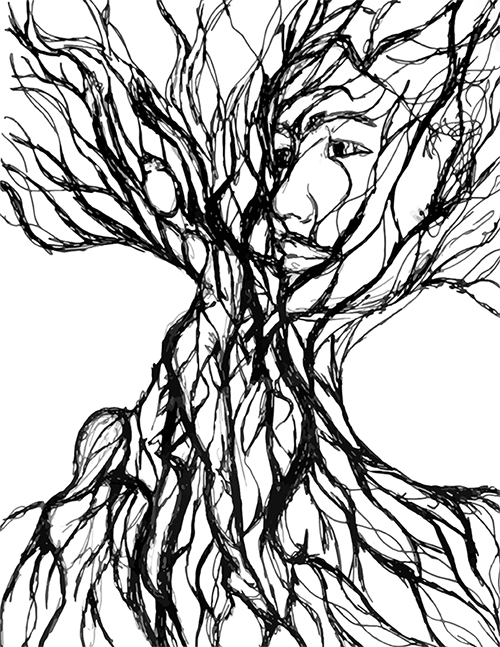
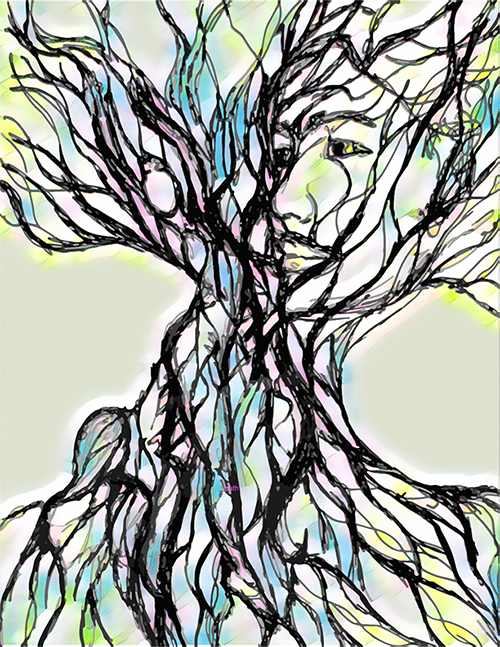
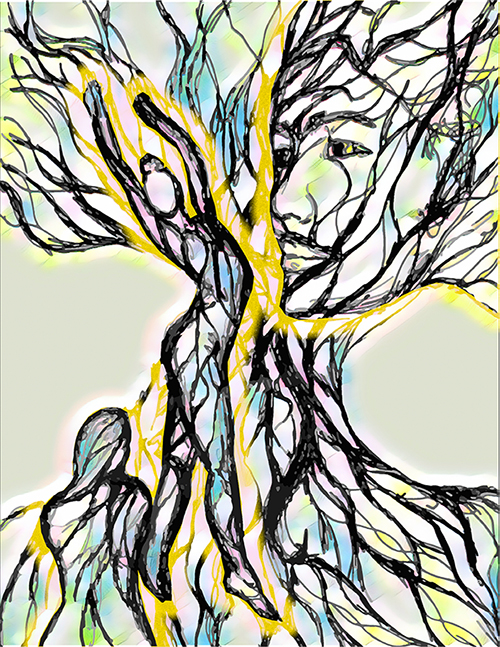
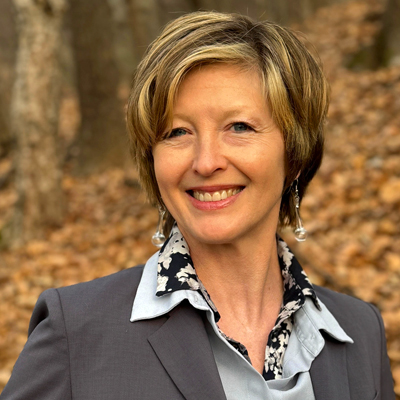 Dr. Tamberly Conway, Founder and CEO of Conservation Conexions, is a global conservation and diversity consultant, Certified Nature and Forest Therapy Guide, Certified Forest Therapy Trails Consultant, and International Society of Arboriculture Certified Arborist. She is an international speaker and former U.S. Forest Service (USFS) specialist, where she focused on conservation education, diversity, and partnerships for over 12 years, particularly advancing diversity in urban forestry. Her work centered on the connection between nature and human health, with a focus on Latino communities, leading to projects like urban food forests and tree canopy education. She introduced Forest Therapy into USFS programs, including leadership in the first-ever bilingual guide training funded by the USFS.
Dr. Tamberly Conway, Founder and CEO of Conservation Conexions, is a global conservation and diversity consultant, Certified Nature and Forest Therapy Guide, Certified Forest Therapy Trails Consultant, and International Society of Arboriculture Certified Arborist. She is an international speaker and former U.S. Forest Service (USFS) specialist, where she focused on conservation education, diversity, and partnerships for over 12 years, particularly advancing diversity in urban forestry. Her work centered on the connection between nature and human health, with a focus on Latino communities, leading to projects like urban food forests and tree canopy education. She introduced Forest Therapy into USFS programs, including leadership in the first-ever bilingual guide training funded by the USFS.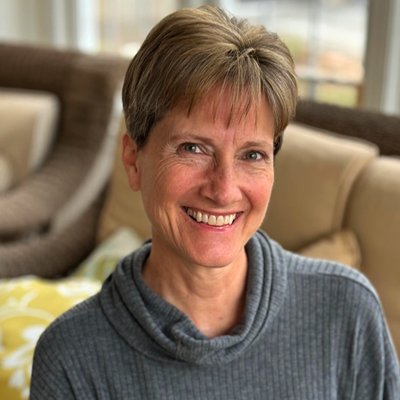 Jennifer brings a broad wealth of knowledge from her vast experiences with wildlife research, human health and well being, and construction. Her expertise is further bolstered by her Zoo Animal Technology degree, dual Bachelors in Criminal Justice and Sociology, PTEC degree; Certified Holistic Health Practitioner and Certified Home Inspector.
Jennifer brings a broad wealth of knowledge from her vast experiences with wildlife research, human health and well being, and construction. Her expertise is further bolstered by her Zoo Animal Technology degree, dual Bachelors in Criminal Justice and Sociology, PTEC degree; Certified Holistic Health Practitioner and Certified Home Inspector.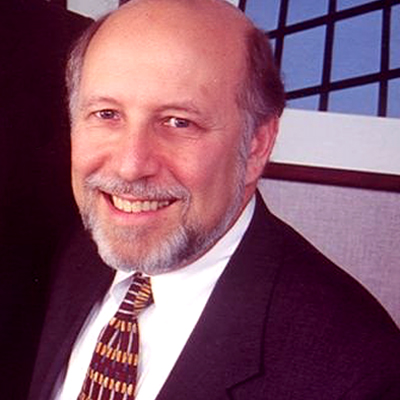 Friedman Group, Ltd. Founder in 1995 and President for the last 29 years, Eric has been providing commercial/industrial/affordable housing real estate services to clients in the business, not for profit, government, and investment community. Eric has over 54 years experience in business development, community, economic development, non profit and real estate brokerage, development, consulting industry.
Friedman Group, Ltd. Founder in 1995 and President for the last 29 years, Eric has been providing commercial/industrial/affordable housing real estate services to clients in the business, not for profit, government, and investment community. Eric has over 54 years experience in business development, community, economic development, non profit and real estate brokerage, development, consulting industry.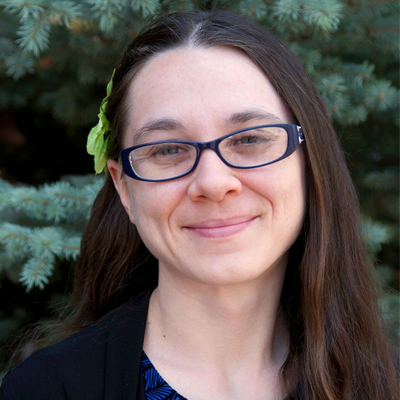 Daisy Morgan is a first-generation college graduate and scientist with a B.S. in Conservation Biology from the University of New Mexico and an M.S. in Geochemistry from the New Mexico Institute of Mining and Technology. She has over a decade of experience working with New Mexico youth and communities in outdoor learning, environmental stewardship, and the Wild Friends Program at UNM School of Law, where she taught STEAM, civics, and more. Her minor in Native American Studies enriched her understanding of Indigenous worldviews, which she applied during internships with Native American communities.
Daisy Morgan is a first-generation college graduate and scientist with a B.S. in Conservation Biology from the University of New Mexico and an M.S. in Geochemistry from the New Mexico Institute of Mining and Technology. She has over a decade of experience working with New Mexico youth and communities in outdoor learning, environmental stewardship, and the Wild Friends Program at UNM School of Law, where she taught STEAM, civics, and more. Her minor in Native American Studies enriched her understanding of Indigenous worldviews, which she applied during internships with Native American communities.

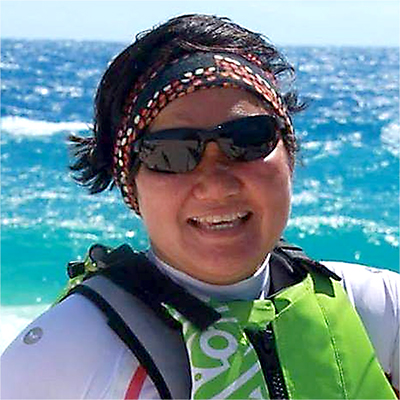 Deborah Sue holds a Master of Science in Tropical Forestry and Management from the Technical University of Dresden, Germany, where she received a scholarship and focused her thesis on the role of forest certification in sustainable plantation management. She also earned a Bachelor of Science from James Cook University, Australia, with scholarships in marine biology, wildlife biology, and conservation biology. She has completed certification courses, including Lead Auditor for the Forest Stewardship Council (FSC) and Environmental Management Systems auditing.
Deborah Sue holds a Master of Science in Tropical Forestry and Management from the Technical University of Dresden, Germany, where she received a scholarship and focused her thesis on the role of forest certification in sustainable plantation management. She also earned a Bachelor of Science from James Cook University, Australia, with scholarships in marine biology, wildlife biology, and conservation biology. She has completed certification courses, including Lead Auditor for the Forest Stewardship Council (FSC) and Environmental Management Systems auditing.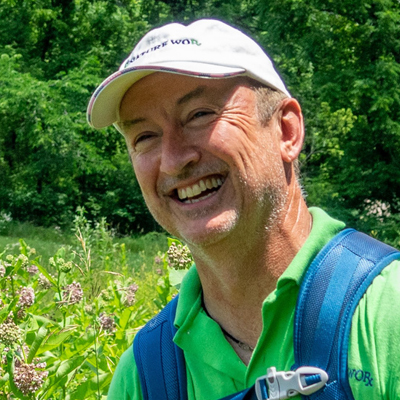 Phil Hosmer is the founder and Executive Director of Nature Worx, a non-profit organization based in Bel Air, MD. Since 2017, Nature Worx has reached more than 4,500 people, delivering evidence-informed therapeutic sessions connecting people with nature to support their health and well-being.
Phil Hosmer is the founder and Executive Director of Nature Worx, a non-profit organization based in Bel Air, MD. Since 2017, Nature Worx has reached more than 4,500 people, delivering evidence-informed therapeutic sessions connecting people with nature to support their health and well-being.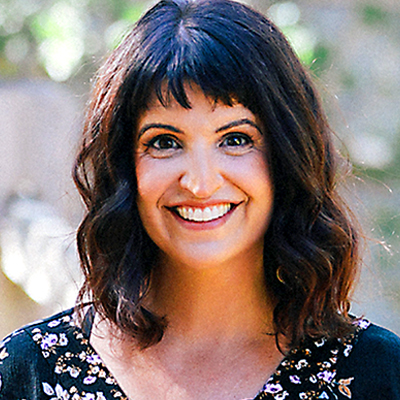 Jenny Harrow-Keeler, MA, is the founder of
Jenny Harrow-Keeler, MA, is the founder of 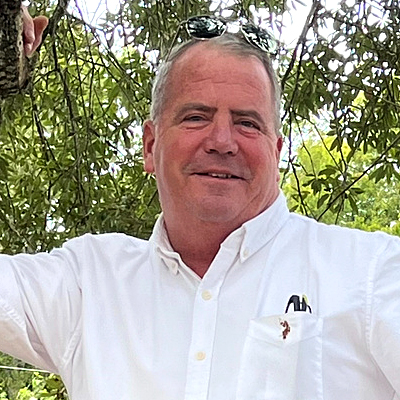 Lieutenant Colonel Joel Burdette attended Auburn University on an NROTC scholarship. After receiving a BS in Aviation Management in 1993, he was commissioned a Second Lieutenant in the U.S. Marine Corps. LtCol Burdette’s numerous meritorious service medals are a testament of his 23 years of military service as a decorated officer.
Lieutenant Colonel Joel Burdette attended Auburn University on an NROTC scholarship. After receiving a BS in Aviation Management in 1993, he was commissioned a Second Lieutenant in the U.S. Marine Corps. LtCol Burdette’s numerous meritorious service medals are a testament of his 23 years of military service as a decorated officer.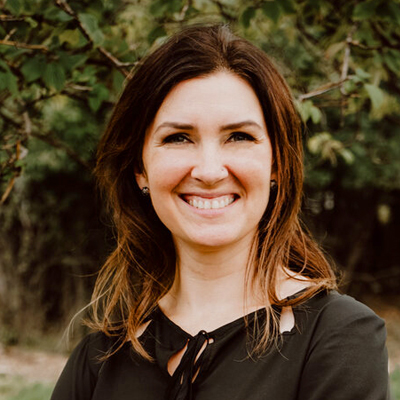 Nicole Craanen, MFA, NCIDQ, WELL-AP, LEED-Green Associate, ANFT Nature & Forest Therapy Guide.
Nicole Craanen, MFA, NCIDQ, WELL-AP, LEED-Green Associate, ANFT Nature & Forest Therapy Guide.





















